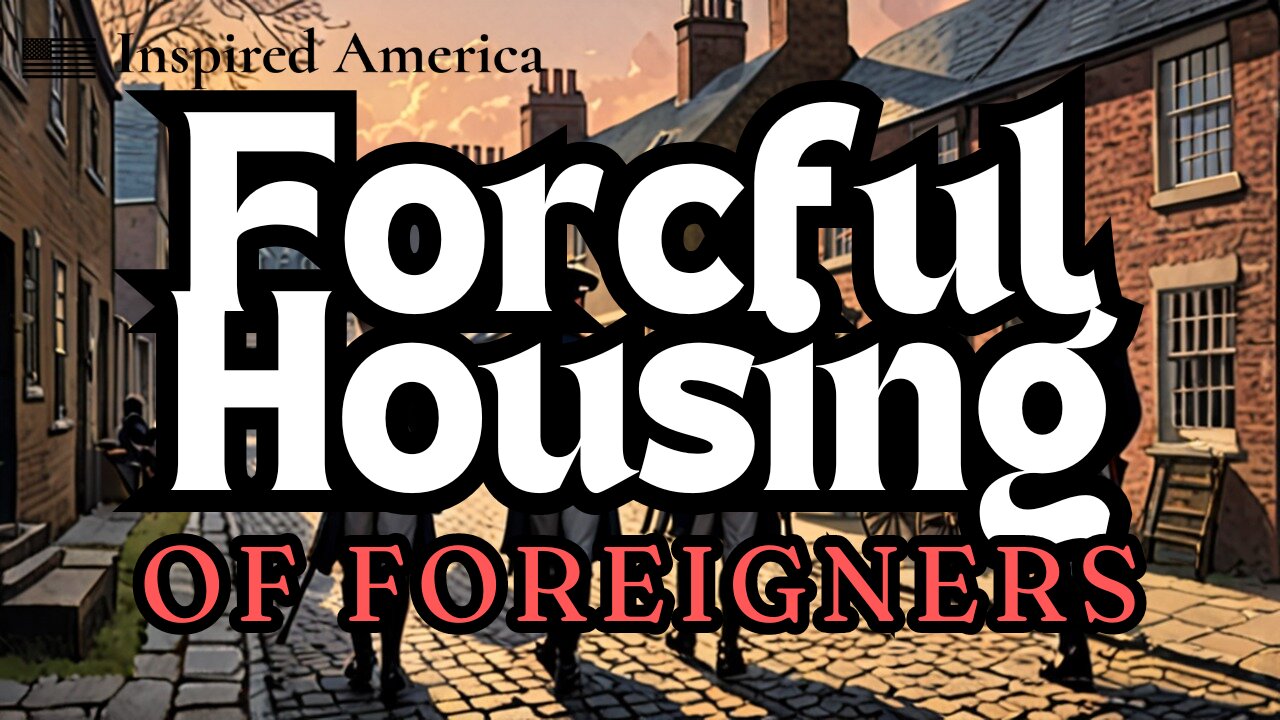Premium Only Content

🇺🇸”The Quartering Act of 1765: Colonial Resentment and Military Occupation”🇺🇸
The Quartering Act of 1765 was a legislative act passed by the British Parliament to address the expenses of British troops stationed in the American colonies following the Seven Years War (1754–1763). This act required colonial assemblies to provide housing, provisions, and other accommodations for British soldiers stationed within their territories.
Under the Quartering Act, if barracks were unavailable, colonial authorities were obligated to provide housing for British soldiers in other suitable accommodations, such as inns, alehouses, stables, and barns.
Additionally, the colonies were expected to furnish the soldiers with firewood, bedding, cooking utensils, and other essentials at their expense.
The Quartering Act evoked strong opposition and resentment among the colonists.
They viewed it as a violation of their rights and freedoms, as it encroached upon their personal property and local governance.
Colonists were particularly alarmed by the prospect of housing and feeding standing armies during peacetime, which they deemed unnecessary and intrusive.
The Quartering Act, coupled with other measures like the Stamp Act and Townshend Acts, heightened tensions between the colonists and British authorities.
The colonists protested against what they perceived as an imposition of British military power on civilian life.
This intensified the sentiment of anti-British fervor and contributed to the burgeoning movement for colonial autonomy.
Several colonial assemblies, such as the New York Assembly, resisted complying with the Quartering Act, citing financial burdens and the principle of parliamentary overreach.
The Act's enforcement, however, created friction between colonial governments and the British Parliament, escalating the rift between the colonies and the mother country.
The Quartering Act of 1765 was technically repealed in 1770 but replaced by a modified version in 1774. The new Quartering Act allowed British troops to be quartered in unoccupied buildings, barns, and houses if suitable barracks were not available.
However, by this point, colonial sentiments against British rule had already reached a critical stage, paving the way for the American Revolutionary War.
The Quartering Act played a significant role in exacerbating colonial grievances and fostering resentment towards British authority.
It added fuel to the flames of discontent among the colonists and contributed to the broader movement that eventually led to the American colonies seeking independence from British rule.
-
 8:44:47
8:44:47
SpartakusLIVE
11 hours ago$20,000 Hide and Seek Tourney w/ Stonemountain64 || #1 Rat wins the BIG CHEESE
62.3K -
 2:34:02
2:34:02
Barry Cunningham
7 hours agoLISA COOK | ADAM SCHIFF | LETITIA JAMES | ARE THEY BEING SACRIFICED BY THE DEEP STATE?
89.4K53 -
 1:36:19
1:36:19
Flyover Conservatives
15 hours agoOnly 17% of Millennials Hit These 5 Adult Milestones—Why?; What If Childhood Trauma Is Behind Your Health Problems? - Dr. Troy Spurrill | FOC Show
32.6K4 -
 4:49:04
4:49:04
HogansAlleyHero
16 hours ago💥CHASING DOPAMINE💥✅TRUMP SAYS BATTLEFIELD IS THE BEST✅
41.8K3 -
 1:57:40
1:57:40
MattMorseTV
7 hours ago $10.90 earned🔴Trump just SHATTERED the PROJECTIONS.🔴
54.3K50 -
 2:32:19
2:32:19
megimu32
6 hours agoOTS: From Star Search to Superstardom
38.7K4 -
 1:56:21
1:56:21
Joker Effect
5 hours agoInterviewing GREENMAN! Looks like he is coming to Rumble! Let's give him a warm welcome! REAL TALENT
23.7K1 -
 1:07:21
1:07:21
Anthony Rogers
12 hours agoEpisode 380 - Is Pain All In Your Head?
16.6K3 -
 1:46:17
1:46:17
Glenn Greenwald
9 hours agoGlenn Takes Your Questions on Censorship, Epstein, and More; DNC Rejects Embargo of Weapons to Israel with Journalist Dave Weigel | SYSTEM UPDATE #505
118K8 -
 3:26:34
3:26:34
Jokeuhl Gaming and Chat
11 hours agoHelldivers 2 - Spreading Democracy w/ Ryker
13.2K1